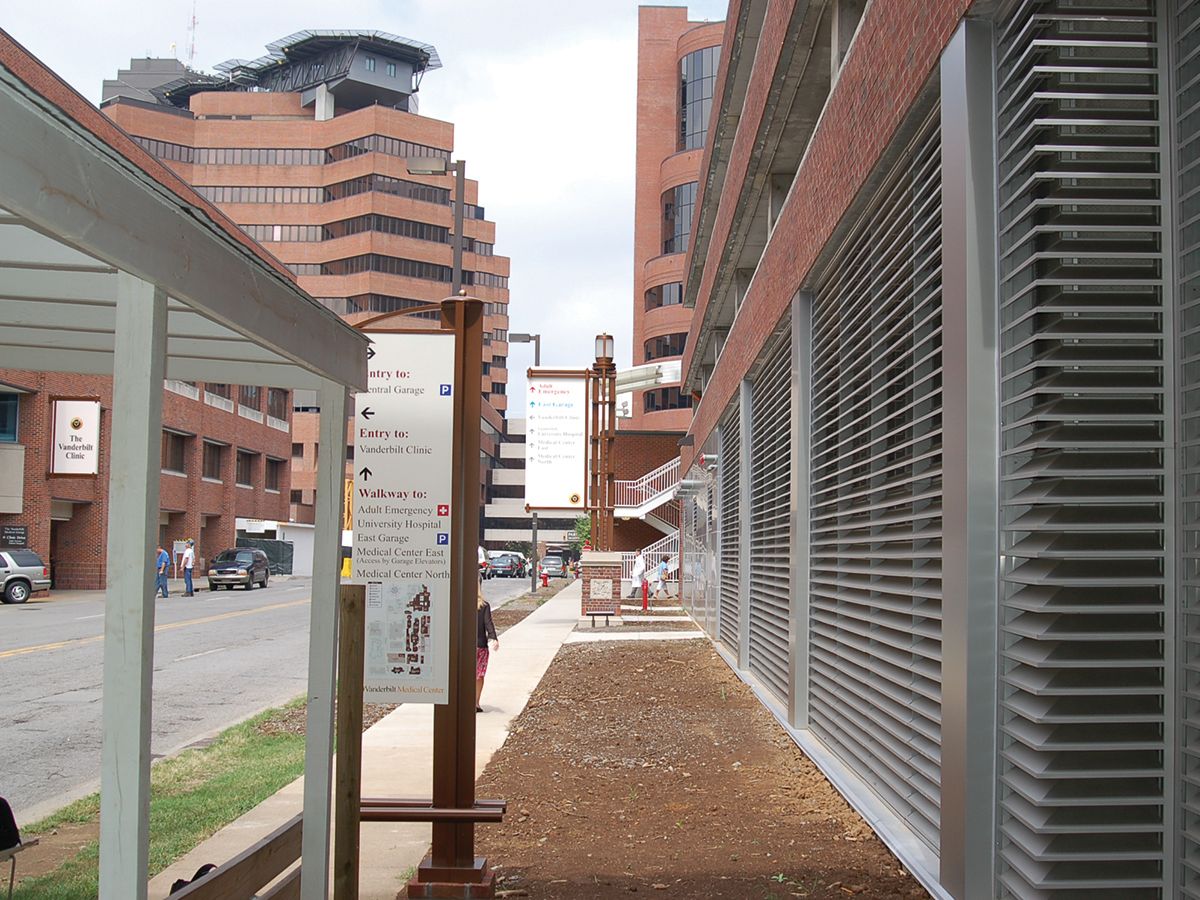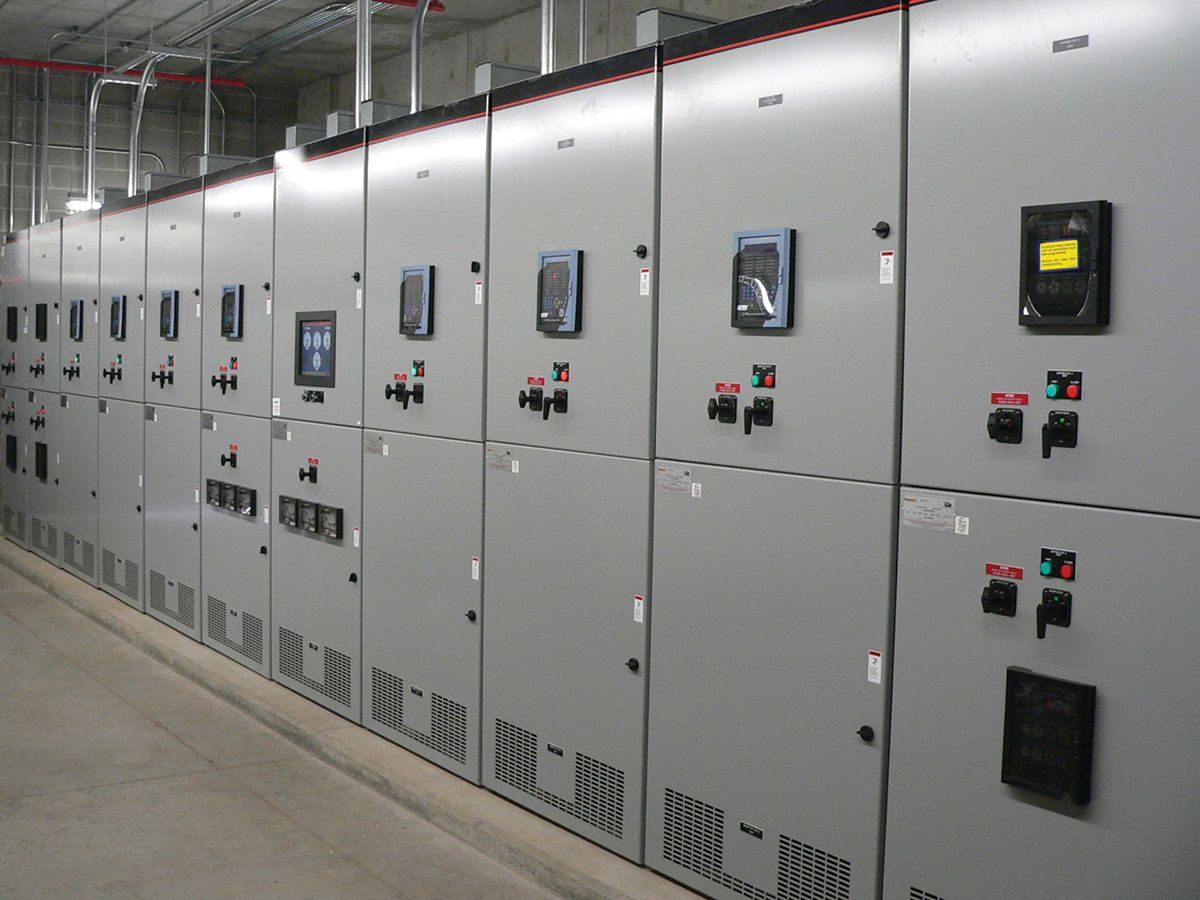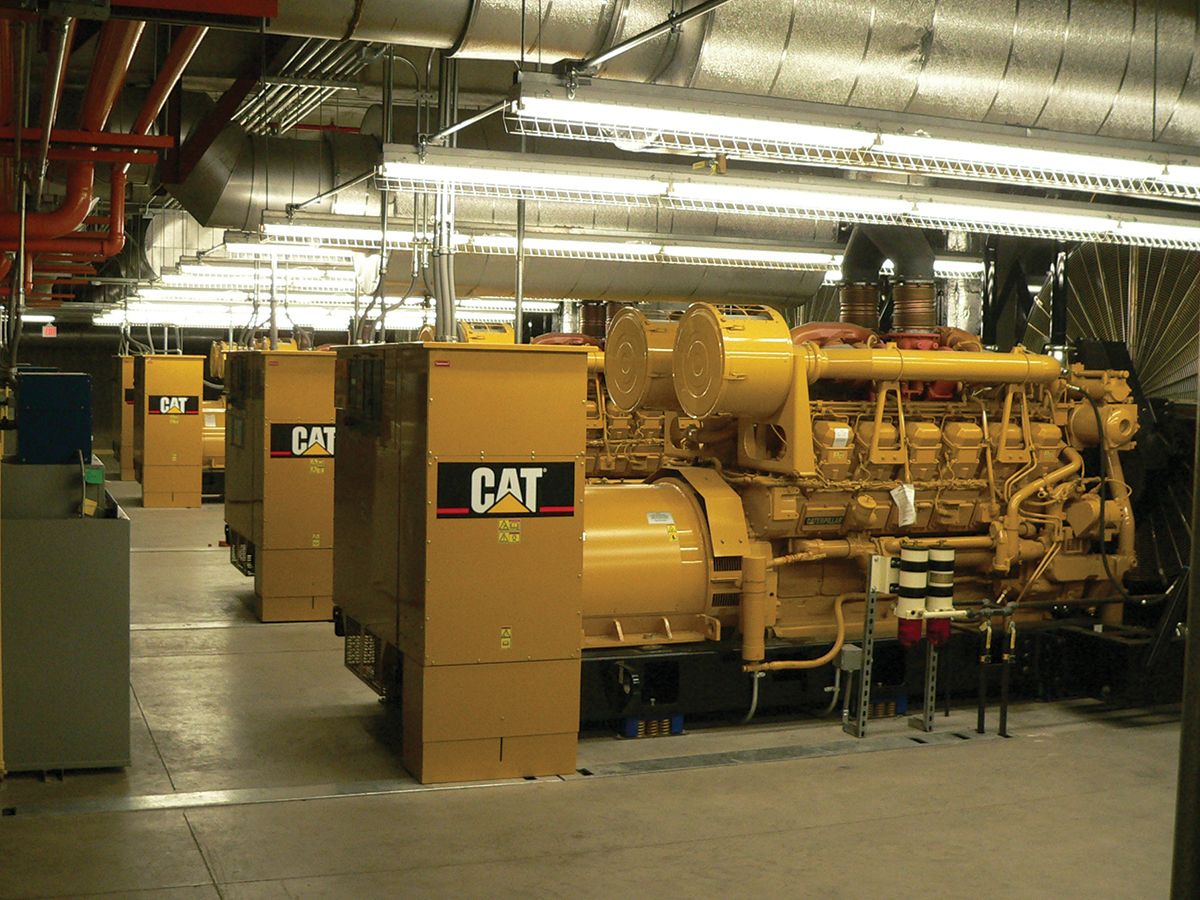Power Need
The Vanderbilt University Medical Center (VUMC) needed to consolidate several standby power generators that served various parts of this major teaching and research medical center in Nashville, Tennessee. The new generator facility needed to be built close to the existing electrical infrastructure yet could not be located within existing structures because of space limitations. Noise, exhaust fumes and fuel storage were also constraints that demanded consideration. To meet these needs, The Vanderbilt Clinic (TVC) Highbay Power Plant project was launched in 2006 to provide the capability for instantaneous switchover during a power interruption and ample power generation capacity to meet this critical-care medical center’s need for reliable backup power. With acute medical care provided around the clock at VUMC, an uninterruptible power supply is literally a matter of life and death for its patients.
VUMC is a major teaching and critical-care medical center that has built a strong reputation as a leader in medical education, research and patient care throughout the Southeast and the nation over the course of its 127-year history. In 2007, TVC had over 1,000,000 patient visits, and more than 50,000 patients were admitted to Vanderbilt University Hospital, with a substantial number of patients from outside Tennessee. A principal referral center for physicians and patients throughout the region, Vanderbilt University Hospital and TVC consistently rank among the premier health care facilities in the United States. VUMC is ranked among the foremost programs in the nation by U.S. News & World Report in its annual edition of “America’s Best Hospitals”.
VUMC set specific goals for the consolidation of its standby power generation capability. The Joint Commission on the Accreditation of Healthcare Organizations (JCAHO), which accredits VUMC, requires that the power system operate 24/7 with full redundancy, reliably ensuring the switchover of power within 10 seconds of any interruption. JCAHO mandates a combination of utility and generator backup power to achieve full compliance and that any standby power generation system be tested at 30% load for 30 minutes at least monthly. The TVC Highbay Power Plant provides automated test data from these monthly tests that can be accessed remotely.
Power Need
The Vanderbilt University Medical Center (VUMC) needed to consolidate several standby power generators that served various parts of this major teaching and research medical center in Nashville, Tennessee. The new generator facility needed to be built close to the existing electrical infrastructure yet could not be located within existing structures because of space limitations. Noise, exhaust fumes and fuel storage were also constraints that demanded consideration. To meet these needs, The Vanderbilt Clinic (TVC) Highbay Power Plant project was launched in 2006 to provide the capability for instantaneous switchover during a power interruption and ample power generation capacity to meet this critical-care medical center’s need for reliable backup power. With acute medical care provided around the clock at VUMC, an uninterruptible power supply is literally a matter of life and death for its patients.
VUMC is a major teaching and critical-care medical center that has built a strong reputation as a leader in medical education, research and patient care throughout the Southeast and the nation over the course of its 127-year history. In 2007, TVC had over 1,000,000 patient visits, and more than 50,000 patients were admitted to Vanderbilt University Hospital, with a substantial number of patients from outside Tennessee. A principal referral center for physicians and patients throughout the region, Vanderbilt University Hospital and TVC consistently rank among the premier health care facilities in the United States. VUMC is ranked among the foremost programs in the nation by U.S. News & World Report in its annual edition of “America’s Best Hospitals”.
VUMC set specific goals for the consolidation of its standby power generation capability. The Joint Commission on the Accreditation of Healthcare Organizations (JCAHO), which accredits VUMC, requires that the power system operate 24/7 with full redundancy, reliably ensuring the switchover of power within 10 seconds of any interruption. JCAHO mandates a combination of utility and generator backup power to achieve full compliance and that any standby power generation system be tested at 30% load for 30 minutes at least monthly. The TVC Highbay Power Plant provides automated test data from these monthly tests that can be accessed remotely.
Solution
To meet VUMC’s need for a reliable, redundant standby power source, four Cat® 3512B generator sets and customized switchgear were configured and installed. Each Cat generator set produces 4,160 volts for transmission to 480-volt substations. Double-ended parallel switchgear with parallel ties across the breaker allows additional priority loads to come online within the JCAHO-mandated 10 seconds.
The TVC Highbay Power Plant was designed and installed through a cooperative venture with Thompson Machinery Corporation, the local Cat dealer, that included design work from Eaton Electrical, Inc. and Smith, Seckman & Reid, Inc. Thompson Machinery received installation and general contractor work from Turner Logistics through Turner Universal and electrical contracting from Wolfe and Travis Electric. Caterpillar designed the new components to use 15-kV breakers to match the existing wiring at VUMC, to help integrate the new system with the existing infrastructure, and to increase the versatility of distributing power.
The cornerstone of the TVC Highbay Power Plant is the Cat 5-kV metal-clad switchgear with Powerlynx 3000 control, enhanced operator interface using touch-screen controls and remote PCs for monitoring and control. According to John Deason of Thompson Machinery, historical trends of power output and distribution can be monitored, and routine maintenance of all components of the system can be tracked. “Cat® switchgear helps the hospital run more efficiently. Once you have a reliable system with established trending, you can monitor the system for its routine maintenance needs and, of course, perform the monthly testing,” said Deason.
Designed to be fully compatible with the existing Automatic Transfer Switch (ATS) interface, the switchgear facilitates the automated testing and reporting mandated by JCAHO. During each monthly test, a simulated shutdown of the utility power supply is conducted, and the TVC Highbay Power Plant must demonstrate the ability to switch over to full output within 10 seconds.
“With Cat’s system in place, the hospital has a great deal of redundancy and reliability built in,” said Deason. “Our monitoring system gives the operators far more information than they had in their older backup generator installation.” And all of the information can be obtained in real-time, from a remote PC, according to Deason.
“You no longer have guys with clipboards taking transfer switch output readings for 30 minutes each month,” said Deason.
Result
Installation of the initial four generators at the TVC Highbay Power Plant was completed in December 2006. Chris Buckner, the lead electrical engineer with VUMC’s Office of Space and Facilities Planning, oversaw the TVC Highbay Power Plant project from initial scoping through final commissioning. For Buckner, the decision to go with Caterpillar generators was based on VUMC’s experience with Cat power products.
Buckner reports that the successful installation and rollout of the first four generators in 2007 has cleared the way for the installation of a fifth unit in 2008 and a sixth unit in 2009. Caterpillar has earned VUMC’s loyalty by consistently meeting the medical center’s high expectations for reliable emergency power. Buckner notes that 18 of the 24 emergency generator sets currently in place on campus are Caterpillar products, and a capital project is currently underway to replace two aging non-Caterpillar generator sets with Cat power systems.
“When that last capital project is complete, it will mean that 20 of 24, or 94% (21.6 MW), of our total emergency generator capacity (22.9 MW) will be provided by Caterpillar,” said Buckner. Since the installation was completed, the JCAHO-mandated monthly tests have been conducted successfully. “Testing involved four different shutdowns to individually test each and every start signal and each load shed from the 31 transfer switches associated with the power plant,” Buckner said. While JCAHO mandates the minimum requirements for power redundancy, VUMC and Caterpillar tested the system far beyond the minimal requirements—for obvious reasons.
“We did extensive testing of each generator and each transfer switch because we couldn’t have a situation where the hospital wasn’t covered. In fact, we conducted a continuous 36-hour run test of all four generators synchronized to the board after each of the generators was extensively tested individually so that we could simulate an extended power curtailment from our local utility—which we do experience from time to time,” Buckner explained.
Buckner is also impressed by how quiet the Cat generators are. “We installed sound attenuators on the generators, and the units are so quiet that cell phone conversations are not interrupted on a sidewalk that’s just 10 feet from the radiator discharge louvers,” Buckner said. “One of the main entrances to our clinic is directly across from this plant, and we were expecting to have a possible echo problem or just noise in general that would disturb patients entering the clinic. But we start our generators up, and no one even looks over to see what’s happening. It truly is impressive.”
According to Deason, with the extensive testing and final adjustments of the power plant now complete, reviews of the new system have been uniformly positive.
“VUMC especially values the automated testing capability because of the amount of information they can get about the whole system, the fact that they can be alerted of a problem before it escalates, and that they can monitor and schedule maintenance to prevent problems,” said Deason.
He points to enhanced confidence in the system’s reliability as one of the most significant achievements of the TVC Highbay Power Plant.
“Because the system is so much simpler to operate, test, and maintain, there’s much greater confidence in its ability to be there when it’s needed,” said Deason. And that confidence in the capability of the system—literally, when patients’ lives are at stake—has ensured that Cat generators will continue to be the first choice as VUMC continues to grow.
Clearly, this success in generating emergency power is ensuring a successful relationship between VUMC and Caterpillar. “This project was very collaborative and went very smoothly,” said Deason. “I see it as proof that when Caterpillar leads the way with quality products and we work together with an installation designed to meet or exceed our customer’s needs, we succeed.”


